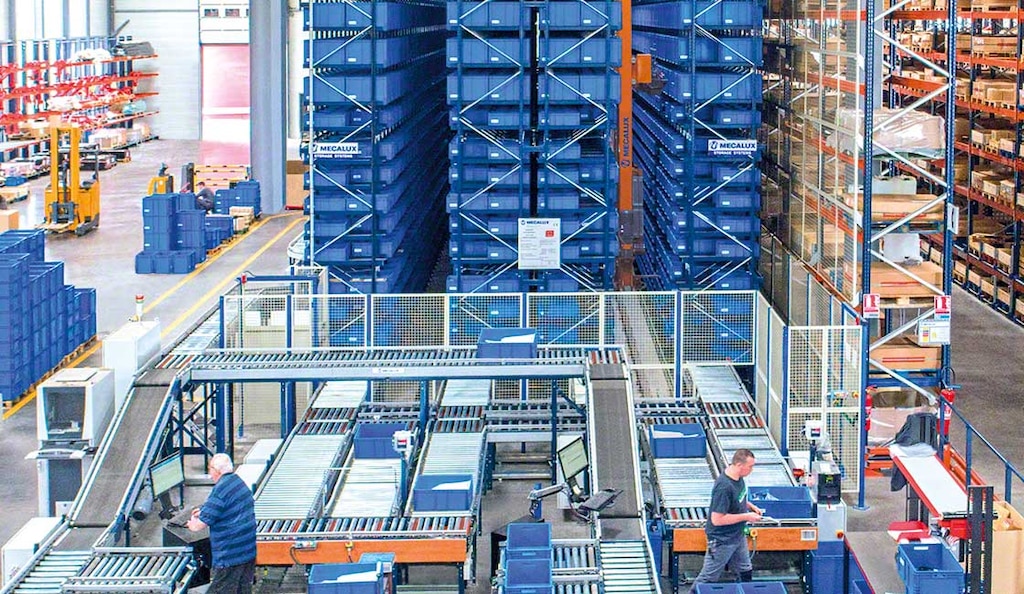
The road to supply chain as a service (SCaaS)
The concept of supply chain as a service (SCaaS) refers to the outsourcing of several or all supply chain management functions to a service provider. SCaaS helps to optimize logistics processes by working with a virtual partner that manages supply chain operations.
The use of technologies, especially cloud computing, is essential to enable external logistics providers to access all data and ensure efficient supply chain as a service.
What is supply chain as a service (SCaaS)?
The term supply chain as a service responds to a logistics model in which digital management of supply chain operations is outsourced to one or more partners. These operations include production, storage, inventory control, order fulfillment, and dispatch.
To digitize your supply chain and ensure that an external provider — e.g., a 3PL — can manage logistics processes with complete visibility, it’s necessary to implement cloud software that uses cloud computing technology. A cloud-based warehouse management system (WMS) facilitates remote access to the system from any device via an internet connection.
Supply chain as a service fosters continuous improvement in organizations through data analysis and the incorporation of automation in their logistics facilities. Moving to digital supply chain management makes it possible to lower the cost of business activities, make better use of resources, and have scalable logistics processes.
Managing logistics in the cloud with the help of an external partner is an increasingly popular option. According to a report from Allied Market Research, the North American supply chain as a service (SCaaS) market is slated to reach over $7.85 billion by 2025, “driven by proliferation of mobile devices and internet penetration in emerging economies.”
Challenges of employing SCaaS
For supply chain as a service to be efficient, several conditions must be satisfied:
- Seamless communication between business and provider: the transition to SCaaS calls for perfect coordination between warehouse managers, who are familiar with the day-to-day of the logistics facility, and the logistics provider that will manage the supply chain operations.
- Investment in cloud computing technology: to benefit from supply chain as a service, it’s crucial to implement cloud computing technology. This enables remote access to the logistics software from any device by means of an internet connection.
- Trust in a logistics provider: choosing a reliable external provider is key for guaranteeing the success of the service. 3PL providers have the knowledge, expertise, storage systems, and digital programs that ensure complete visibility over inventory and the utmost flexibility in all the logistics stages a product undergoes.

Benefits of implementing SCaaS
Supply chain as a service offers multiple advantages, including:
- Resource optimization: with cloud computing technology, supply chains are fully optimized, reducing errors and making the most of company resources.
- Elastic logistics: SCaaS lets businesses scale their supply chain operations and resources to boost efficiency during peaks in demand and adjust needs in times of lower volumes of outbound orders. The supply chain can be modified and expanded to adapt to business growth and fluctuations.
- Real-time stock control: with a digital warehouse, you know the exact status of your inventory thanks to the warehouse management software, which monitors goods entries and exits in real time.
- Improved safety: all information and data generated in the logistics facility are captured and stored in the cloud by means of cloud computing. The risk of accidental data loss is minimal, as backups are automatically created.
The concept of supply chain as a service — and, failing that, cloud computing — is redefining business management and, particularly, the way in which logistics and the supply chain operate. Generally speaking, new technologies have proven to be the best ally for guaranteeing the success of companies that choose to externalize management of their supply chains.
Warehouses operating under SCaaS
Logistics facilities integrated in supply chain as a service have smart supply chains. That is, they’re equipped with a warehouse management system (WMS) that optimizes processes and flows while providing full product traceability.
Automation is another characteristic found in warehouses run under SCaaS. Machines and automated systems coexist with operators as they carry out their tasks. Automated storage and retrieval systems (AS/RS) are solutions in which most movements are made automatically, with the help of handling equipment such as stacker cranes, conveyor systems, and/or electrified monorails.
Supply chain as a service has also led to the rise of dark warehouses, totally automated facilities that require no light as no human interaction takes place inside them. In these warehouses, no operators are required to carry out storage, preparation, or dispatch tasks; instead, software-guided robots are charged with performing these operations.

Outsourcing of supply chain management
Supply chain as a service promotes the subcontracting of supply chain management as a result of the digital transformation that businesses are undergoing. More and more companies are turning to external suppliers to manage their logistics processes to improve speed, visibility, and accuracy across the supply chain. This allows organizations to devote their time and effort on enhancing their main activity.
Making the decision to manage goods digitally makes storage and order picking tasks safer and speedier. At Interlake Mecalux, we’re specialists in adapting warehouses to the digital world with the implementation of our Easy WMS warehouse management software. Want to know more about how a cloud-based warehouse management system can help enhance your logistics processes? Don’t hesitate to contact us. One of our expert consultants will advise you on the best solution for your business.
